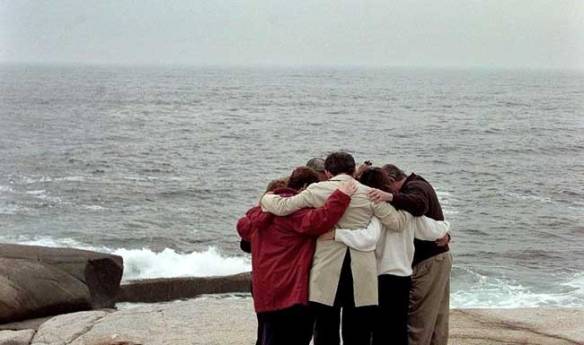Before the crash of Germanwings 9525 or the disappearance of MH370, there was SwissAir Flight 111. In some ways, the story is tragically predictable: a plane gone down in the ocean, hundreds of lives lost, hundreds more altered forever. But Michael Paterniti’s story for Esquire tells so much more. He takes the reader inside the plane, as it fell out of the sky and careened toward the water, then into the aftermath, tracing the ways that one event rippled out and changed the lives of so many people. Not only does Paterniti offer a powerful meditation on life, love, and death, but the depth of reporting and strength of his writing make this piece one of the best literary journalism stories composed in the last 20 years.

Getty Images.
It was summer; it was winter. The village disappeared behind skeins of fog. Fishermen came and went in boats named Reverence, Granite Prince, Souwester. The ocean, which was green and wild, carried the boats out past Jackrock Bank toward Pearl Island and the open sea. In the village, on the last shelf of rock, stood a lighthouse, whitewashed and octagonal with a red turret. Its green light beamed over the green sea, and sometimes, in the thickest fog or heaviest storm, that was all the fishermen had of land, this green eye dimly flashing in the night, all they had of home and how to get there — that was the question. There were nights when that was the only question.
This northerly village, this place here of sixty people, the houses and fences and clotheslines, was set among solid rocks breaching from the earth. Late summer, a man and woman were making love in the eaves of a garishly painted house that looked out on the lighthouse — green light revolving, revolving — when a feeling suddenly passed into them.
Yes, something terrible was moving this way.
Read more at Esquire.
Love the moose? Share the moose.




